Sardor Abdullayev, assistant to the khokim in the Uyshun makhalla of the Chirakchi district of Kashkadarya region, in an interview to the "Economic Review" magazine about the situation with the "makhallabay" system's implementation.
— It is for the first time in our country, the “makhallabay” system has been launched, thanks to which the support for entrepreneurship, of living standards and of employment started to be carried out within the makhalla. The position of the "assistant to the khokim" has been introduced in all makhallas. What is the nature of this job for you? How do you see and understand it?
— The introduction of a new position of the "assistant to the khokim" by our esteemed President provides an opportunity for direct communication between the government and each resident of the makhalla, an opportunity to learn more about people's opinions, their problems and to work individually with citizens. This, in my opinion, will further increase the confidence of the people in the ongoing reforms.
...
— The “makhallabay” system is designed for close interaction of all levels of management. How is this interaction established? Do you feel support from the district, region and republic?
— Good cooperation has been established with the khokimiyat, but shortcomings are also observed in the consideration of proposals and problems in the makhalla. To accelerate the resolution of issues, I suggest creating a "Suggestions&Problems" department based on an online platform and giving access to this platform to responsible organizations of the district. At the moment we use the Telegram messenger for it.
...
— Tell us about the results of studies and surveys. How can you describe the current state of poverty in your makhalla? What are the main problems and causes of poverty that have been identified?
— In the makhalla, on average, 6 people live in each house. The number of teenagers is 1,159 people (24%), preschool children — 280 people (6%), pensioners — 868 people (18%). There are 225 people with higher education and 1,150 people with secondary specialized education. The study revealed several main causes of poverty of some families in the makhalla. The first and most basic is different approaches to education. For example, poor families do not pay much attention to it, parents estimate the benefits of it as low. In my opinion, the educational expenses are a profitable investment for the future, because a good employment later will compensate for all of these expenses. More specifically, the study revealed that families where there is a person with a higher education or a certain profession earns 2-3 times more than others. In addition, these families pay more attention to the education of their children. The second reason for poverty lies in the following: for a long time, the population of the makhalla has been engaged in cattle breeding, and many of the residents are afraid to venture into other types of entrepreneurship. In my opinion, this is more related to the low level of education, since only education allows you to look at the world more broadly, not to be afraid to take risks and discover new opportunities that will help you overcome poverty. The third reason is poor health. This is also one of the main factors leading to poverty. Therefore, it is necessary to organize meetings between specialists and residents about a healthy lifestyle. For example, in makhalla there are 530 people with cardiovascular diseases - it is a consequence, mostly, of improper nutrition. The fourth reason is that, despite numerous measures, weddings are still being celebrated on a large scale. On average, a one-day wedding event takes 50-60 million sums. Most families have been saving this money for years, skimping on children's education and family health. Some borrow from friends, and after the wedding the groom will have to go abroad to earn money to pay off debts.
...
— What can you tell us about ensuring food security and people’s availability to necessary and high-quality food products in your makhalla?
— Each house in the makhalla has from 30 acres to 1 hectare of garden, in which livestock feed is usually grown. Only 5 houses have greenhouses where strawberries, onions and other vegetables are grown. We are actively promoting the cultivation of vegetables and fruits in our garden among the population of the makhalla. We give as an example – Shavkat Erkayev, who grows strawberries in his greenhouse and receives 35-40 million sums of income per year from this. By paying great attention to greenhouses, we will be able to develop self-employment and supply the population with necessary and high-quality food.
...
— What practical and methodological assistance is required to perform your work more effectively?
— Personally, I am very interested in how developed countries have reduced poverty and I read many articles concerning this issue. Obviously, each region is unique and requires an individual approach. And our task is to find the right approach for the development of the attached makhalla. This requires knowledge and experience from us. Various poverty reduction experiments are being conducted in developed countries. It would help us a lot if we could also get acquainted with their results. And it would be very useful to organize seminars and trainings for all assistants to the khokims. Moreover, practical assistance is needed during conducting surveys to identify the needy segments of the population, determining the level of poverty and summarizing the results.
...
— Based on your experience, tell us what else needs to be done to reduce poverty in the makhalla?
— Prior to this position, I worked in the Ministry of Investment and Foreign Trade, was the first deputy khokim of Karshi district and was a head of the regional Department for Entrepreneurship Development. Based on my experience gained while working in these organizations, first of all, I’m planning to increase the interest of the makhalla residents in entrepreneurship. I also plan, based on the potential of makhalla, to develop business plans for new projects, find initiators and comprehensively help them in the implementation of these projects. As a result, new jobs will be created and unemployment will decrease.
...
Read full interview on: Помощники хокима — среди народа — Review.uz
Jamollidin Turdimov, CERR
In country/"Makhallabai" system
"Economic review" magazine №3 (267) 2022

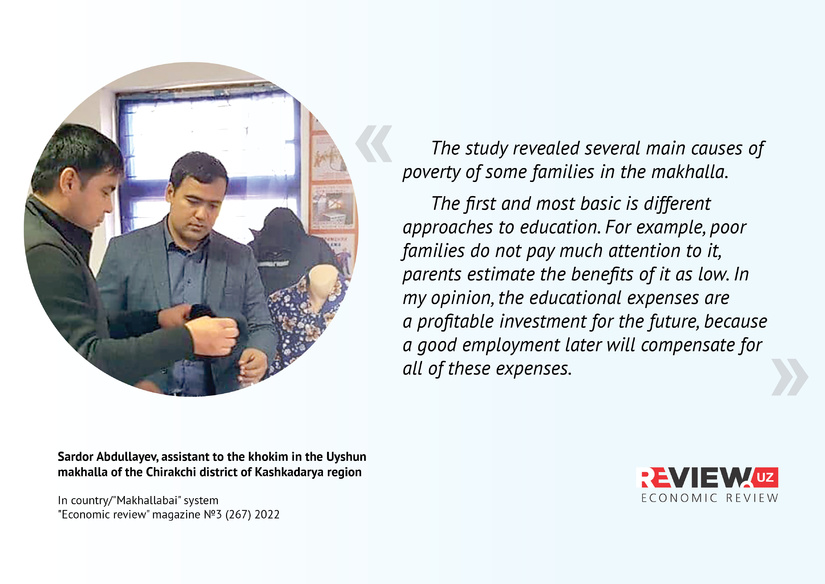
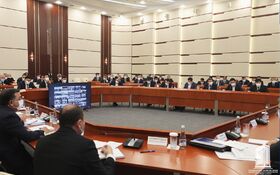
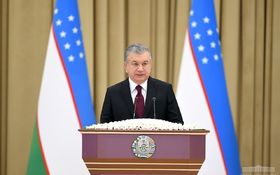
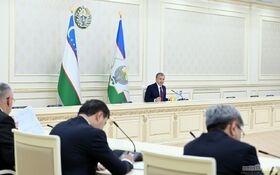
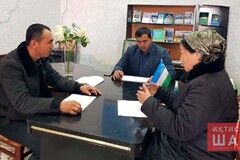
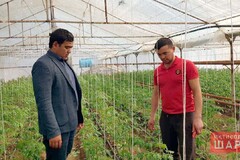
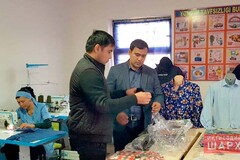




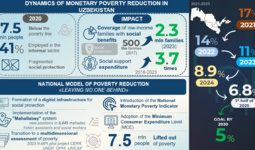
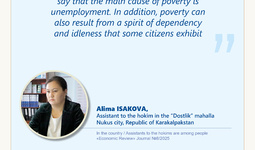













leave a comment